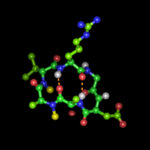Description:
Bacopa monnieri is a medicinal creeping perennial in the Scrophulariaceae family with small oblong leaves and white to purple flowers frequently used in ayurvedic medicine. Other names for this nutrient include brahmi, water hyssop, thyme-leaved gratiola, and the nutrient of grace. Brahmi is derived from Hindu mythology meaning “Brahma,” or the “supreme creator.” The term Brahmi has been used to describe Bacopa monnieri, Centella asiatica (Gotu kola), or a combination of the two botanicals.
Overview of Benefits:
How it Works:
Bacopa monnieri has many pharmacological actions, including antioxidant, anti-inflammatory, anticonvulsant, cardiotonic, bronchodilator, and peptic ulcer protection. The leaf powder of Bacopa has been shown to have antioxidant effects. The cognitive-enhancing properties of Bacopa are likely from the presence of a group of saponins collectively referred to as bacosides. Purified bacosides A and B, as well as bacopa alcoholic extract, may facilitate learning ability, memory, and cognitive performance.
Some possible mechanisms which may lead to cognitive improvement include modulation of acetylcholine release, muscarinic cholinergic receptor binding, and choline acetylase activity. The saponins in Bacopa modulate hypothalamic-pituitary-adrenal (HPA) axis output and protect the hippocampus. Bacopa causes an anti-inflammatory effect on activated microglial cell cultures. The microglial cells respond to any injury by transforming into either a neuroprotective or neurotoxic phenotype that releases pro-inflammatory cytokines.
In one study, tea, infusion, and alkaloid extracts of Bacopa, as well as bacoside A administration, was shown to significantly inhibit the release of TNF alpha and IL-6 from activated N9 microglial cells in vitro. Other research demonstrates several mechanisms of action, including acetylcholinesterase inhibition, beta-amyloid reduction, choline acetyltransferase activation, increased cerebral blood flow, and monoamine potentiation. Many neuroprotective aspects of Bacopa have been studied.
Bacopa has been reported to protect against oxidative damage via decreased protein carbonyl levels in both cytosol and mitochondria in all brain regions. There is evidence of the inhibitory activity of Bacopa in the prevention of lipid peroxidation in the prefrontal cortex, striatum, and hippocampus of rats. In the presence of free radicals, the first line of defense is the antioxidant superoxide dismutase, which increases with oxidative stress. One study reported decreased superoxide dismutase activity to normal levels in treated diabetic rats. This suggested homeostasis between the oxidant and antioxidant species. Reduced glutathione was significantly depleted in diabetic rats compared to non-diabetic rats due to oxidative stress. Bacopa has been reported to increase the level of reduced glutathione.
Possible Interactions/Contradictions
Bacopa monnieri may inhibit the acetylcholinesterase enzyme, which may result in increased acetylcholine levels. As a result, Bacopa could counteract the effects of anticholinergic drugs and may worsen bradycardia and exacerbate conditions such as gastrointestinal obstruction, peptic ulcer disease, pulmonary conditions such as asthma, and chronic obstructive pulmonary disease or urogenital tract obstruction.
How it Works:
Animal Studies
In a study on male albino mice, Bacopa monniera extract was administered along with phenytoin in the second week of a two-week trial. There was a significant reversal of phenytoin-induced cognitive impairment with improved acquisition and retention of memory and no effect on the anticonvulsant activity. Some animal studies suggest a benefit from Bacopa monnieri for Alzheimer disease, epilepsy, Parkinson disease, and cerebral ischemia/infarct. It has been shown to cure gastric ulcers in animals and have anti-Helicobacter pylori activity in human colonic tissue.
Human Studies:
Bacopa monnieri functioning as a cognitive performance enhancer was demonstrated in a small (17 patient) randomized control trial published in 2014. They noted statistically significant improvement in cognitive performance (mental arithmetic, Stroop, letter search, visual tracking), improved mood, and a decreased cortisol response from stress after one dose of Bacopa (320 mg and 640 mg). A stronger effect was observed with the 640 mg dose. In contrast, another small study (30 subjects) evaluated a daily dose of 450mg over a 12-week period in healthy adults, which demonstrated no significant change in cognitive testing scores (learning and memory, information processing), but a trend for decreased anxiety in the Bacopa group.
A meta-analysis incorporating nine randomized controlled trials (437 subjects) demonstrated an improved speed of attention and cognition and decreased reaction time. In a randomized, double-blinded, placebo-controlled study, patients (54 adults) were given a 300 mg standardized extract of either Bacopa or placebo. Measurements were obtained by evaluating tasks of attention, memory, and psychological state at baseline and following a 12-week trial. The treated group demonstrated enhanced delayed word recall memory scores and increased ability to ignore irrelevant information (Stroop’s test) relative to placebo.
In a study of memory acquisition, there was a randomized, double-blinded study (81 adults 55 years and older) that reported a 12-week cycle of Bacopa significantly improved memory acquisition and retention in healthy older Australians. A meta-analysis incorporating results from six studies with 12 weeks or greater duration found that Bacopa improved memory-free recall but did not improve other aspects of cognition. These studies used a 300 to 450 mg dose of Bacopa extract standardized to 10 to 20% bacopa glycosides
View this article on the National Institute of Health – Here













